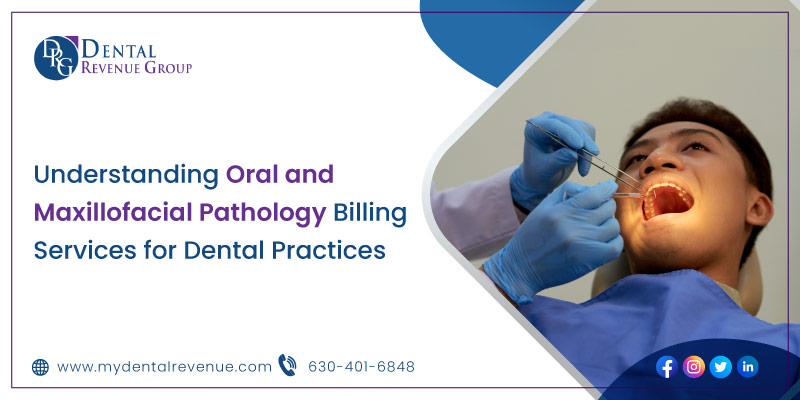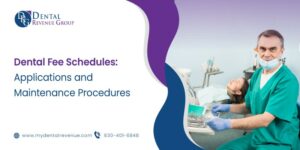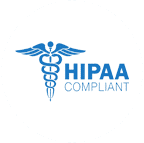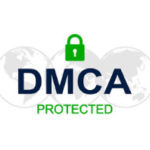Oral and maxillofacial pathology billing services play a crucial role in the smooth functioning of dental practices. Dental professionals must comprehensively understand these billing services to ensure accuracy, efficiency, and profitability in their practices. This blog post will explore the key aspects of oral and maxillofacial pathology billing services, including the importance, challenges, and best practices. So, let’s get started!
Importance of Oral and Maxillofacial Pathology Billing Services
Oral and maxillofacial pathology focuses on diagnosing and treating diseases affecting the oral and facial regions. Accurate billing practices are essential for the financial health of any dental practice. These procedures involve diagnosing and treating diseases affecting the mouth, jaws, and related structures. It is crucial to thoroughly understand the billing codes and regulations specific to these procedures to ensure correct reimbursement from insurance companies. Effective billing and revenue management are essential for the sustainability and success of any healthcare practice, including oral and maxillofacial pathology.
Challenges in Oral and Maxillofacial Pathology Billing Services
Various factors can make oral and maxillofacial pathology billing services complex and challenging. Understanding the specific billing requirements, documentation, and coding guidelines is paramount to avoid claim denials and delays in reimbursements. Additionally, keeping up with the ever-changing insurance policies and regulations can be overwhelming for dental professionals. Oral and maxillofacial pathology billing services encounter various challenges unique to their specialized field. These challenges can impact revenue, operational efficiency, and patient satisfaction. Let’s delve into these issues:
Complex Coding and Billing:
Oral and maxillofacial pathology involves intricate procedures and diagnoses. Accurate coding and billing for these specialized services require expertise to ensure proper reimbursement.
Changing Regulations:
Healthcare billing is subject to evolving regulations and compliance standards. Updating coding guidelines, insurance policies, and government regulations can be demanding and time-consuming.
Inaccurate Documentation:
Proper documentation is essential for successful billing. Incomplete or inaccurate patient records can lead to claim denials or delays in reimbursement.
Insurance Verification and Authorization:
Verifying insurance coverage and obtaining pre-authorization for specific procedures can be time-intensive, affecting patient care and billing.
Delayed Payments and Revenue Cycle:
Billing delays and claim denials can disrupt the revenue cycle, leading to cash flow problems and impacting the practice’s financial health.
Inefficient Claims Management:
Managing claims, tracking their status, and addressing denied claims require effective systems and processes. Without streamlined claims management, revenue can be lost.
Patient Communication:
Explaining billing details to patients and handling their questions or concerns can be challenging. Clear and effective communication is crucial for maintaining patient satisfaction.
Rising Administrative Costs:
Maintaining an in-house billing department can be expensive due to the need for skilled staff, training, software, and infrastructure.
Data Security and Privacy:
Handling sensitive patient information requires strict adherence to data security and privacy regulations, adding another layer of complexity to billing processes.
Managing Uninsured or Underinsured Patients:
Determining appropriate billing strategies for patients without insurance or limited coverage can be challenging while ensuring fair and ethical treatment.
Staff Training and Turnover:
Ensuring that billing staff are well-trained and up-to-date with industry changes is crucial. High turnover in billing departments can disrupt operations and impact revenue.
Denial Management and Appeals:
Effectively managing denied claims and navigating the appeals process requires specialized knowledge and resources.
Best Practices for Oral and Maxillofacial Pathology Billing Services
Dental practices can implement the following best practices to optimize the billing services for oral and maxillofacial pathology:
Transparent Billing Procedures
Establish transparent billing procedures to ensure consistency by outlining a standardized process for everyone.
Your billing process should cover the following:
- Clear billing periods and invoicing dates.
- Essential information for each invoice, like Purchase Order numbers and addresses.
- Effective recordkeeping methods.
- Regular assessment and follow-up of Accounts Receivable.
- Procedures for handling overdue payments.
In addition to daily, weekly, and monthly tasks, include:
- Contact details for billing with each client.
- Specific billing steps tailored to individual clients, if needed.
- Payment specifics and client-specific notes.
This documentation streamlines operations and communication, optimizing oral and maxillofacial pathology billing services.
Training and Education
Dental professionals should invest in continuous training and education to stay updated with the latest billing regulations, coding guidelines, and documentation requirements. Implementing a robust training and education program is a paramount best practice for elevating oral and maxillofacial pathology billing services. Continuous staff training ensures up-to-date knowledge of coding, regulations, and industry trends specific to the field, enhancing accurate documentation and billing. Staying compliant with healthcare regulations and fostering cross-functional collaboration ensures ethical and efficient billing practices. This commitment to ongoing learning equips the team to adapt to changes, fostering improved financial outcomes and patient experiences.
Accurate Coding
Assigning the appropriate billing codes for oral and maxillofacial pathology procedures is crucial for reimbursement. Dental practices should ensure the correct use of ICD-10-CM, CPT, and HCPCS codes to avoid claim denials. Accurate coding is a cornerstone for optimizing oral and maxillofacial pathology billing services. Precise coding ensures that procedures, diagnoses, and services are properly documented and translated into the correct medical codes, such as ICD-10 and CPT. This accuracy is pivotal for successful claims submission, preventing denials, reducing billing errors, and maximizing reimbursements. A dedicated focus on continuous training, staying updated with coding guidelines, and meticulous attention to detail is essential to ensure that the coding accurately reflects the complexity of oral and maxillofacial pathology procedures, leading to improved revenue and streamlined billing processes.
Proper Documentation
Thorough and accurate documentation is essential for successful billing services. To support the billing process, dental professionals should maintain detailed records of patient visits, procedures performed, diagnoses, and treatment plans. Comprehensive documentation also aids in substantiating medical necessity, facilitating effective communication among healthcare providers, and mitigating potential disputes. Oral and maxillofacial pathology practices can enhance billing accuracy, expedite reimbursement processes, and ensure compliance with regulatory requirements, ultimately contributing to improved financial outcomes and high-quality patient care.
Regular Auditing
Regular audits of the billing processes can help identify errors or discrepancies. It ensures the accuracy of claims, reduces the risk of non-compliance, and maximizes revenue for the dental practice. Conducting systematic reviews of billing processes, claims, and financial records ensures accuracy, compliance, and the identification of any discrepancies or potential errors. Regular audits can promptly address inconsistencies, leading to improved financial integrity, minimized revenue leakage, and enhanced overall billing efficiency. Auditing also enables the identification of trends, patterns, and areas for process improvement, fostering a proactive approach to maintaining optimal billing practices and reinforcing the practice’s financial health.
Offer a Discount For Early Payments
Enhance Oral and Maxillofacial Pathology Billing Services by encouraging early payments through a 1% discount. This offer appeals especially to clients with a habit of late payments. It’s an attractive option for financially tight clients seeking savings. Reinforce the discount in monthly invoices to ensure clients are aware and more likely to take advantage of it. This strategy optimizes the billing process and benefits both providers and clients.
Seamless Patient Experience
Enhance Oral and Maxillofacial Pathology Billing Services by prioritizing a seamless payment experience for clients. Many payment issues stem from unclear invoices or a lack of easy payment methods. Did you know? 70% of payment reminders are technical, not about the payment itself. Simplify payment. The fix? Automate parts of the billing process and use a payment portal for clear communication. Late payments don’t always mean bad customers. It might signal flaws in invoicing and payment strategies. Solution? Make payments super easy. Stay in touch, and offer online payment options and clear instructions. Try email-friendly e-invoicing with direct links. Set up user-friendly payment portals with various online options (like credit cards). This builds client rapport and reduces unpaid oral and maxillofacial pathology services invoices.
Outsourcing Billing Services
For dental practices with limited resources or expertise in billing, outsourcing oral and maxillofacial pathology billing services can be a viable option. Professional billing companies specialize in medical and dental billing and can handle all aspects of the billing process efficiently. Outsourcing streamlines the revenue cycle, from claims submission to payment collection, reducing administrative burdens and allowing healthcare providers to focus on patient care. Moreover, it mitigates the challenges of staff turnover and training, ensures consistent and accurate billing, and offers access to advanced billing software and technologies. This collaborative approach can lead to improved financial efficiency, minimized billing errors, and a more seamless experience for both healthcare providers and patients within the realm of oral and maxillofacial pathology.
By following these best practices, dental practices can enhance oral and maxillofacial pathology billing services, minimize claim denials, expedite reimbursement processes, and improve financial performance.
The Bottom Line
A comprehensive understanding of oral and maxillofacial pathology billing services is crucial for dental practices. With the right knowledge, practices can navigate the complexities, overcome challenges, and optimize billing processes. Dental professionals can ensure accuracy, efficiency, and profitability by implementing best practices and staying updated with the latest regulations.











